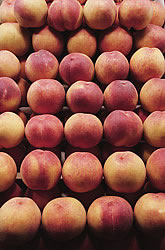Better food through better airflows
Heat exchangers currently in use require constant cleaning, a difficult process in itself. Such items as filters, pipes, chambers and reactors require periodic maintenance, cleansing and constant monitoring to ensure effective functionality. Regular cleansing is also a matter of strict hygiene control, which in the food industry, is of utmost importance. The use of heat exchangers in agro-food industries must meet with optimal quality and safety standards. Slightly faulty refrigeration for example, can fail to preserve dairy products at the correct temperature, causing spoilage or bacterial contamination. Meat storage must occur in dry-freeze conditions. Should any dampness or moisture creep into the atmospheric environment, the meat can ruin. Modial Frigo, a French manufacturing design company, undertook development to improve thermal exchangers. The main thrust of the project was to develop smooth tube horizontal thermal exchangers that would impart improved hygienic performance. Additional aspects under evaluation were the flexibility and safety requirements and the environmental impact of such units. In the pilot prototype developed, thermal, hygrometric, hygienic and food product requirements were found to have superior performance characteristics. Because heat exchangers are designed on mathematical and numerical modelling to suit their precise functioning, Modial Frigo sought to improve the modelling ultimately to enhance the performance of heat exchangers. Both the exchanger and the machine itself are easier to clean showing better conformity to hygiene regulations. Because of better thermal hygrometric control, food quality and safety were also improved. The exchanger showed excellent environmental performance ratios, attaining thermal temperature homogeneity at a constant 93% over a period of 95 hours. Currently the project is ready for commercialisation and the developers are looking for interested parties in the agro-food industry that would like to adapt this technology to suit their needs. They have also developed software to assist in sizing the exchangers appropriate to industrial applications.







